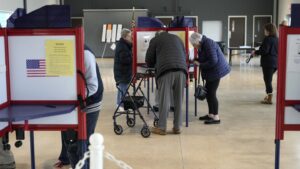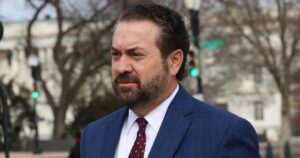Recent developments have highlighted a contentious debate surrounding the intersection of social media, immigration, and national security. The arrest of Khalil, perceived as a response to his activism, has ignited discussions about the limits of executive power and the scope of First Amendment rights in the United States.
President Donald Trump has long been vocal about his stance on university protests, as demonstrated in his Executive Order on national security, which some argue targets protestors. Trump recently announced Khalil’s arrest, indicating it might be the first of many similar actions.
A notable development is the State Department’s new AI-based initiative aimed at identifying and revoking visas of individuals who express support for designated terror groups online. This initiative is part of a larger infrastructure developed since the Obama administration to monitor social media for certain types of speech, despite concerns from civil society groups about potential overreach and targeting of unpopular speech.
Moreover, the federal government collects social media identifiers from visa applicants, with plans under the Trump administration to expand this to include millions more applicants. This expansion was previously blocked by the Biden administration due to concerns about its utility.
The Department of Homeland Security (DHS) also operates numerous programs monitoring online speech, including tracking protests against various policies. Despite these efforts, a February 2017 audit found no measures of effectiveness for such programs, and government evaluations have questioned their value in vetting processes.
The complexity of social media monitoring, especially when applied to foreign protestors, is highlighted by the potential for errors and broad interpretations. AI tools are expected to search for specific phrases, which could lead to significant mistakes, as seen in other Trump administration initiatives targeting diversity, equity, and inclusion programs.
Beyond practical challenges, these efforts raise substantial First Amendment issues. The administration’s broad definitions of terms like “pro-Hamas” or “anti-Semitic” could encompass a wide range of political speech, leading to concerns about suppression of dissent.
The Trump administration’s directive to the Secretary of State to scrutinize foreign nationals undermining U.S. cultural values adds another layer of controversy. The justification for Khalil’s deportation, as stated in a Notice to Appear, further illustrates this expansive approach to national security.
Khalil’s situation exemplifies a broader strategy by the Trump administration to diminish opposition by targeting various entities, including universities and the press. These actions challenge the core democratic principle of free expression.
Just Security editor’s note: This piece is part of the Collection: Just Security’s Coverage of the Trump Administration’s Executive Actions






